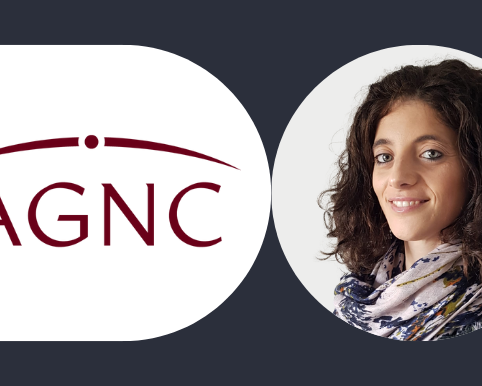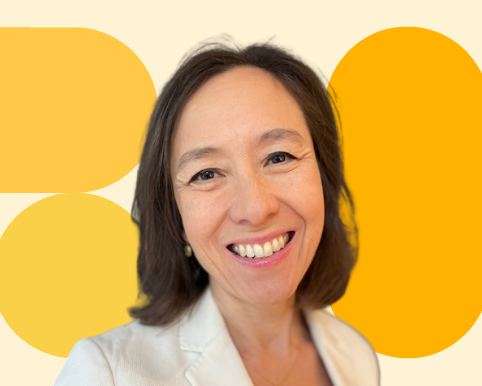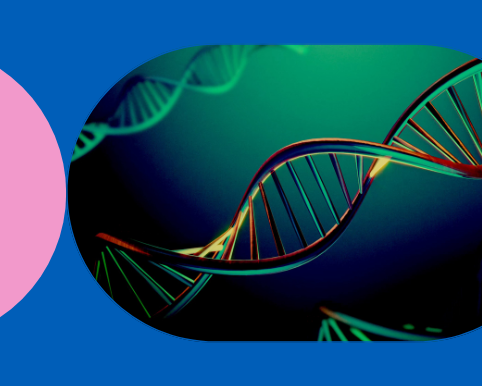Genetic counsellors: Advocates for patients and their genomic healthcare
By Amanda Pichini and Florence Cornish onGenetic counsellors help patients and families to understand complex information, make informed decisions, and adapt to the impact of genomics on their health.
Genetic Counsellor Awareness Day is held on the second Thursday in November each year, aiming to raise awareness about genetic counselling in healthcare and the important role it plays.
Genetic counselling expertise has long been a valued part of Genomics England. This year, we want to highlight the role that genetic counsellors play as advocates, for both patients and the wider public, to enable genomic healthcare.
What does genetic counselling involve?
Genetic counsellors have expert training in genomic medicine and counselling skills.
Most genetic counsellors in the UK work in the NHS as part of a team alongside doctors, clinical laboratory scientists, nurses, midwives and other healthcare professionals.
Their daily tasks include analysing a patient's family history, assessing the chance of inheriting or passing on a condition, arranging genomic tests and communicating results, assisting with family communications, and managing the psychosocial impacts of genetic risk or results.
Genetic counsellors help people across a range of circumstances. For example, they may provide advice to couples who have a higher chance of passing on an inherited condition, support families where a child has been diagnosed with a condition, or arrange predictive testing when someone is at high risk for disease based on their family history.
Increasingly, genetic counsellors are also working in a range of other roles. For example as researchers, policy developers, educators of the wider healthcare workforce, or various subject experts.
In any of these settings, genetic counsellors use their skills as expert communicators and patient advocates to support the safe and effective delivery of genomic healthcare.
How do you become a genetic counsellor?
There are over 300 genetic counsellors in the UK, represented through the Association of Genetic Nurses and Counsellors and registered by the Academy for Healthcare Science.
The Association of genetic nurses and counsellors (AGNC) bring together genetic counsellors from fields within the NHS and beyond, where leadership in patient genomic healthcare and expert advice drive us towards advocacy for families and healthcare professionals alike - ensuring that the information about genomics is always fair, well informed and well interpreted."
Roberta Rizzo, Chair of the AGNC
To train as a genetic counsellor in the UK, you usually need an undergraduate degree in biological sciences, psychology or nursing. You then need to apply for the 3-year NHS Scientist Training Programme (STP) or the MSc programme through Cardiff University.
Genetic counsellors come from a range of backgrounds, and are often driven by a desire to improve healthcare experiences for patients:
I’ve spent the last 10 years developing my practice as a research and health engagement specialist, including at Genomics England in the Diverse Data programme. I’ve worked with different communities thinking about the complexities of trust, involvement in and benefit from research. I’m now a trainee genomic counsellor in the NHS through the Scientist Training Programme, which allows me to bring together everything I’ve learnt and apply it to healthcare.
Dr Marie Nugent, Community Manager at Genomics England and STP Genomic Counselling trainee
Advocates for patients and the wider public
Families living with rare conditions must often navigate a range of appointments, tests and emotions as part of a “diagnostic odyssey” or after receiving a diagnosis.
Creating space for patients to safely share their opinions and experiences, and to understand their values, expectations and concerns, is vital to achieving a patient-centred approach to care.
This is a core focus for genetic counsellors, who act as crucial advocates for patients and their families by helping them to access appropriate screening and care, arranging referrals to specialists, or signposting to patient organisations and other resources.
Genetic counsellors also act as advocates in non-patient-facing roles. Those working in research are involving patients from the start, to identify the research priorities and questions that are most important to them. This includes understanding barriers to accessing genetic counselling, from different communities across the general public.
In the Generation Study, a research study that will sequence the genomes of 100,000 newborn babies, genetic counsellors have worked closely with design research colleagues.
This is to ensure that the needs and experiences of parents, healthcare professionals and families shape how the study is designed, delivered and evaluated.
The future of genetic counselling
There is an exciting future ahead for genetic counselling, with endless opportunities for genetic counsellors to apply their skills.
As we continue to see advances in genomics, there is an increasing need for genetic counselling expertise to help shape how genomic technologies are used, with appropriate consideration for challenges surrounding ethics, families, and wider society.
Genomics is also still growing the evidence base it needs to provide a consistent, equitable service for all:
I’ve learnt that the key to unlocking many of the issues we have in improving the equitable provision of genomic medicine, is within research and healthcare practices. As a sector, we need to imagine different approaches to involving communities in this work, giving them a role in shaping it and deciding priority areas. From being an engagement practitioner, I’ve learnt the value of a slow, sustainable approach to developing relationships with communities who would otherwise avoid involvement in research or not accept genomic medicine. I am excited to bring this knowledge to a rapidly developing area of research-driven healthcare and encourage new approaches to practice to improve equity.
Dr Marie Nugent, Community Manager at Genomics England and STP Genomic Counselling trainee
The role of the genetic counsellors will be more integral than ever as genomics becomes mainstream within the NHS. The need to continue as patient advocates, encourage improvements in practice, champion innovation and support people to advocate for themselves in a constantly evolving field of research and healthcare.
And finally...
If you want to learn more about this topic, you can listen to our previous podcast How can Genetic Counsellors improve care through research?
You can also learn more about genomics through the other blogs on our website.


